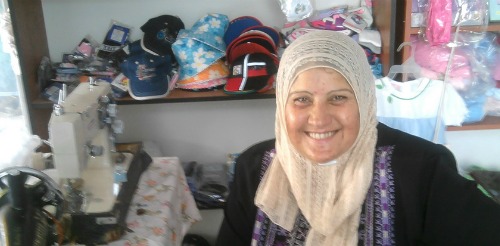Two new initiatives of Koret Israel Economic Development Fund seek to expand the donor base for businesses of disadvantaged Israelis.

Koret Israel Economic Development Fund (KIEDF) has united with the San Francisco-based non-profit organization Kiva Microfunds in a groundbreaking venture aimed at helping Bedouin women of the Negev, Arab Israelis in northern Israel and other low-income sectors of Israeli society.
As part of Kiva’s first partnership with an Israeli microfinance institution, Israel joined its roster of 56 countries to which individuals from around the world can loan as little as $25 via its website. The entrepreneur’s progress can be tracked from initial funding to repayment.
KIEDF’s track record makes it the perfect partner for Kiva, under which some 509,000 people have loaned more than $177 million to 464,000 entrepreneurs over the past six years. Since 1994, KIEDF has facilitated close to NIS 900 million ($206 million) in financing to almost 8,000 small and micro businesses in Israel, creating more than 40,000 jobs in the process.
“This project is still in the pilot stage, and we hope to expand it,” says KIEDF managing director Carl Kaplan. “Kiva originally saw Israel as a developed economy, a member of the OECD [Organization for Economic Cooperation and Development]. It took us a couple of years to convince them that not all of Israel is like that. We persuaded them that some sections of Israeli society – notably Arab and Bedouin women – are actually Third World. It’s not a political issue.”
Partnership with Bank Leumi bears fruit
Microfinancing is becoming a widely used tool for fighting poverty and empowering women worldwide. Small, family-owned businesses have proven critical to the economic viability of women with limited employment opportunities.
“We’ve already facilitated 1,800 loans to Negev businesses, mainly run by women,” says Kaplan, adding that small loans of up to NIS 30,000 are offered under the project.
“We use micro-finance to get these companies credit when they lack sufficient security,” Kaplan explains. “There are three types of companies – if you’re good you don’t need us, and if you’re bad you don’t interest us. We don’t throw money at businesses that we don’t believe have the ability to return it. If a business is good enough to get credit, they don’t need us.”
KIEDF’s efforts to boost the economy of Israel’s Negev and Galilee regions also include an agreement inked with Bank Leumi in 2009 that is beginning to change realities in Israel’s geographic and economic peripheries.
“The program started in January last year,” says Kaplan. “We gave our first loans to businesses in the Negev in September 2010, and expanded to the north in November. As of the end of April 2011, we’ve approved 166 loans worth NIS 76 million [$17.4 million].”
Over the next seven years, some NIS 600 million of credit will be granted for expanding small and medium businesses, as well as creating new ones. For them, the bottom line is lower interest, lower collateral and lower management charges.
Businesses from the Negev and Galilee will benefit from five-year loans ranging from between NIS 50,000 and NIS 1.2 million, at an extremely attractive lending rate of prime +1.5%. And they will need to provide a significantly lower amount of personal capital as guaranteed securities, because KIEDF initiated the program in partnership the Overseas Private investment Corporation (OPIC), a US government agency for private investments in foreign markets.
OPIC is providing $10 million in financing to support expanded lending to small businesses in Israel, noting that the project is expected to generate up to $140 million in new lending and at least 7,000 new jobs in two impoverished regions of the country. In a statement, OPIC noted that the project will enable Bank Leumi to increase its lending to Jewish and Arab borrowers.
The American Friends of Koret Israel Economic Development Funds, a nonprofit corporation based in California, is the US sponsor of the project, while The Portland Trust, a non-profit British foundation promoting peace and stability between Palestinians and Israelis through economic development, is also supporting it.
President Shimon Peres was full of praise for the initiative during its launch at his official residence in Jerusalem: “We are all partners for one noble promising goal – development of the Negev. Your joint undertaking answers several needs but the foremost being reducing unemployment and poverty. Creating new jobs and factories is the best answer to such challenges,” he said.












